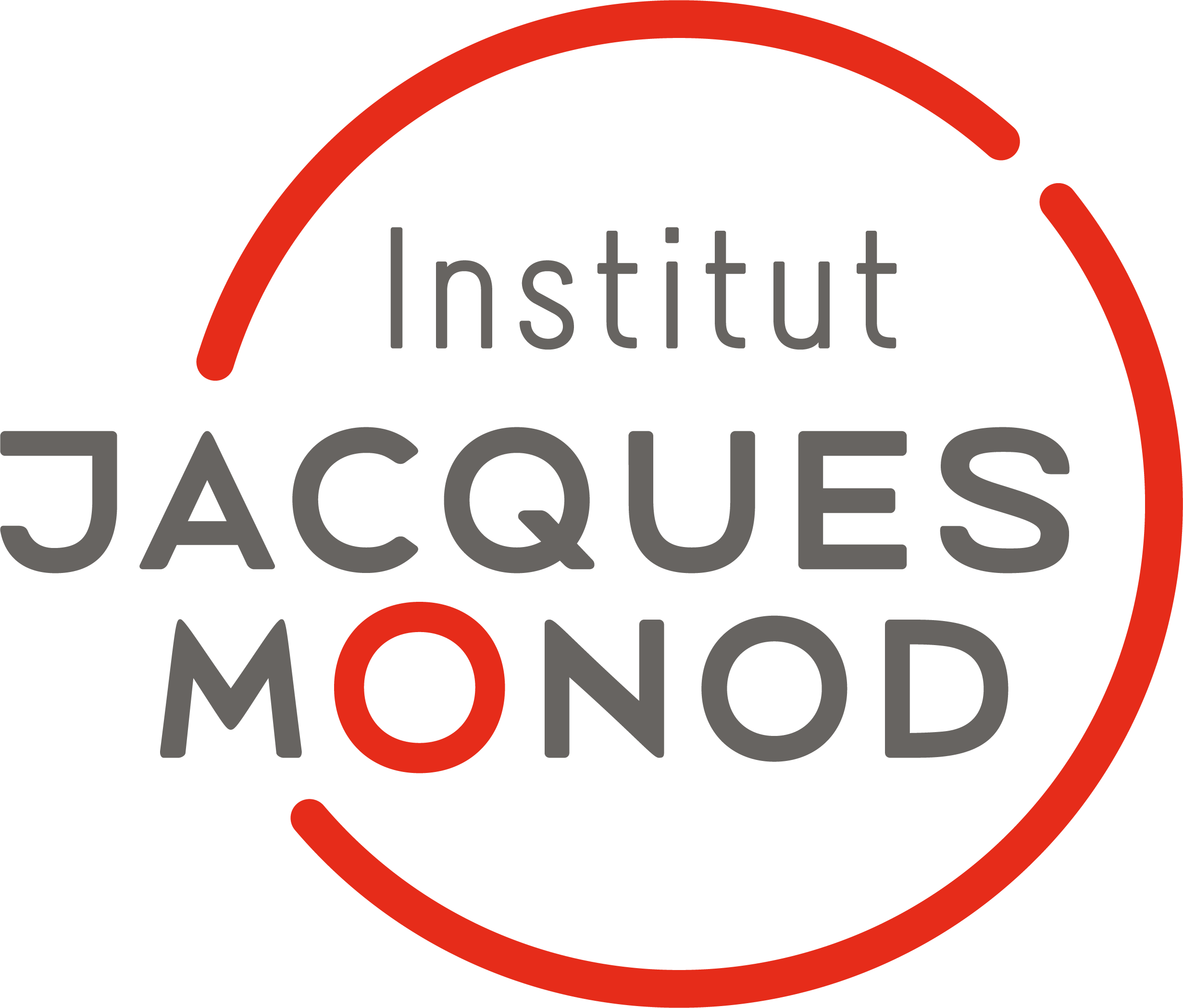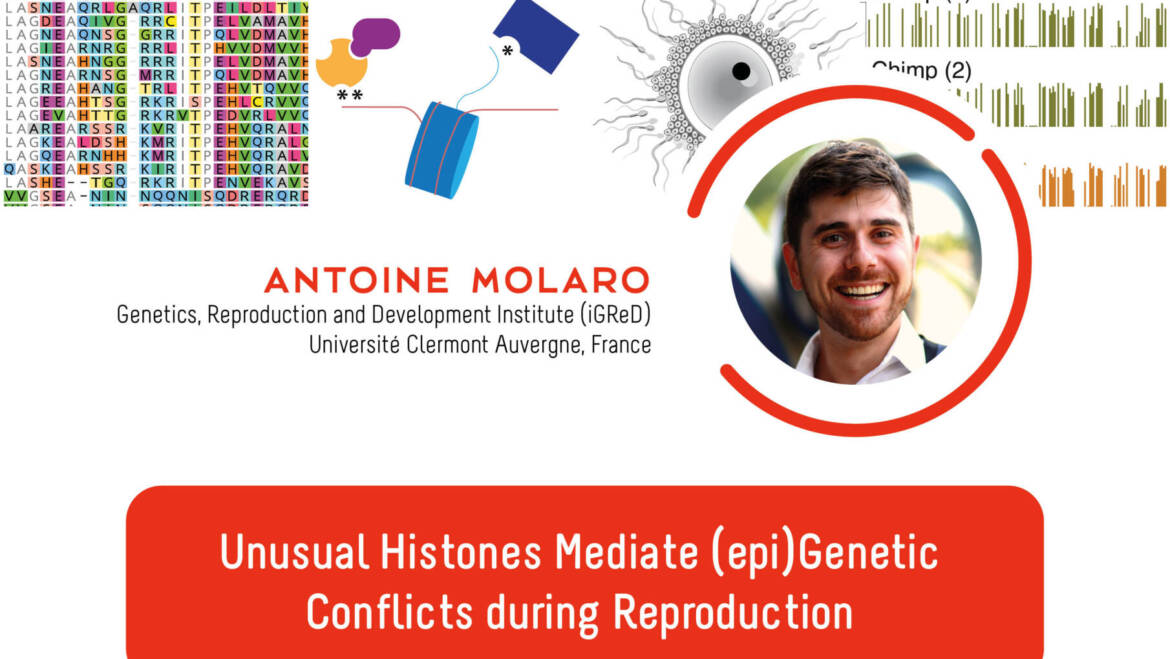Invité par le Young Scientist Club, Antoine Molaro (Université de Clermont Auvergne, France) donnera un séminaire IJM le 28 avril sur le thème :
Unusual Histones Mediate (epi)Génétic Conflicts during Reproduction
Foreword
I am broadly interested in understanding the function of the germline epigenome. In mammals, the germline epigenome is key to the inheritance of genetic and epigenetic information. It is also at the heart of intense evolutionary battles, known as genetic conflicts. These can arise between genetic elements within our genomes, whole chromosomes or between parents. In fact, these constant tugs of war shape fundamental aspect of reproduction and speciation and drive rapid evolutionary innovation. Thus, contrary to current paradigms that focus on evolutionary conservation, I study the rapid evolution of the epigenome to discover novel principles in reproduction and speciation. My research program interfaces epigenomics with evolutionary biology.
Some prior research
As a graduate student, I have uncovered some of the rules behind the co-evolution of the germline genome and epigenome in primates (Molaro, Hodges et al., 2011). I also identified the consequences of small RNA’s adaptive evolution on the establishment of the germ cell epigenome in mice (Molaro et al., 2014). During my postdoc, I have discovered adaptive evolution in germline DNA methyltransferases and in short H2A histone variants in mammals (Molaro et al., 2018 and 2019). Using mouse models, I have uncovered that some short H2As have parental-effect functions that are crucial for embryogenesis (Molaro et al., 2020). In collaboration with cancer biologists we have discovered that short H2As are ectopically expressed in many human cancer (Chew et al., 2021).
Current research
Currently, my team uses mouse models, mammalian cell culture and comparative epigenomics to answer some of the following questions:
1) What are the functions of protein domains subject to diversification in chromatin modifying enzymes?
2) Which evolutionary forces drive short histone H2A variants diversification in mammals?
3) How do short H2As imprint parental epigenomes during mammalian reproduction?
4) How does epigenome evolution shape normal development and disease progression in humans?


